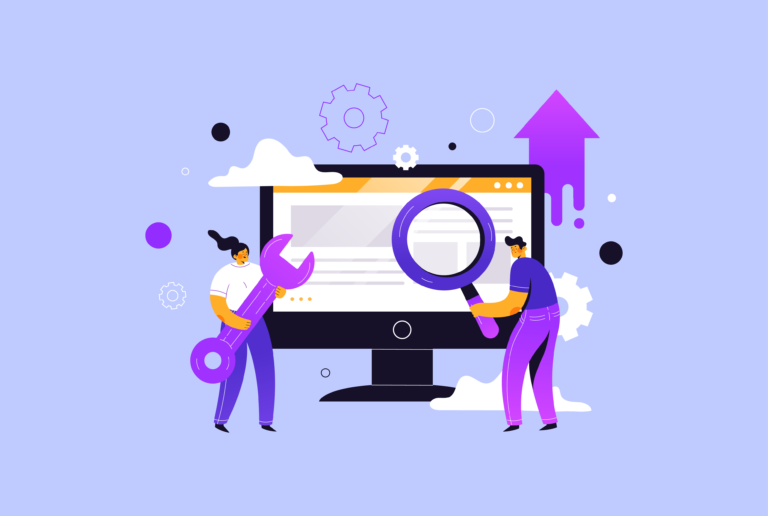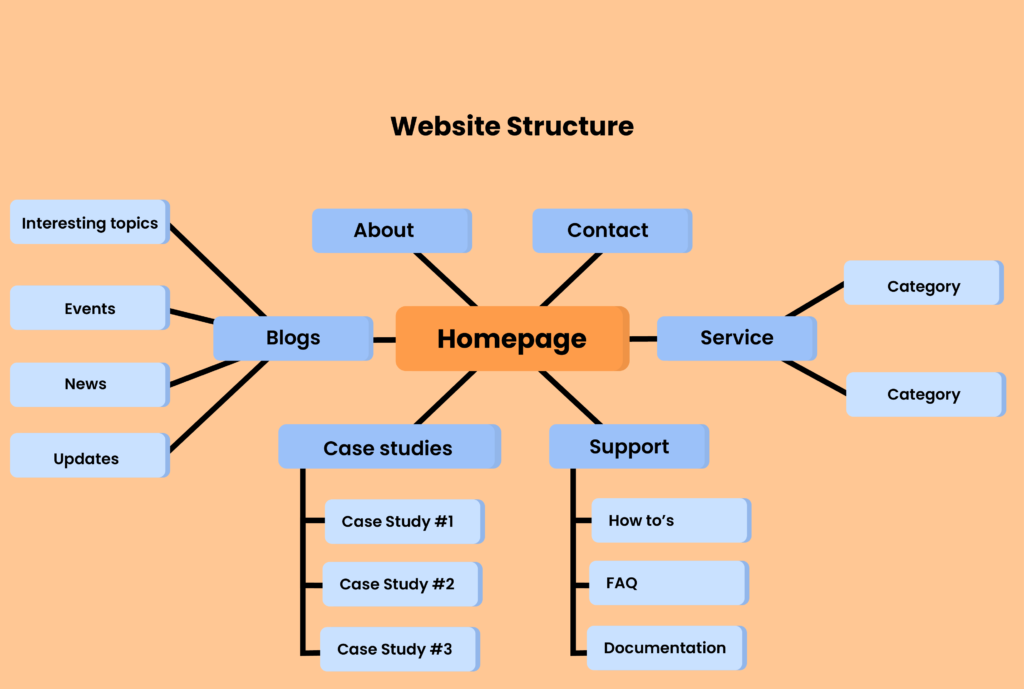[SEO] This is what I’ll do if I have to start over with on-page optimization
-
officialhogi

On page optimization, the process of improving the web page and content for search engines and users. It is one of the essential building blocks for SEO and the one that I personally find the most important aspect of SEO.
For me, On-page optimization is the bridge that connects potential customers to your product.
If the bridge is unstable then less people will use it. Same with your website. You as an SEO specialist have one goal on the website.
Create a clear and seamless customer website journey.
Your website is just like a treasure map, and you as the SEO specialist are the map makers. The clearer the journey is the faster people reach the end destination. And if the map is unreadable then many will stop trying.
Therefore, to create a clear and seamless journey, you have to starts with these questions;
What is the purpose of the website? What do I want web visitors to do on my website?
The Purpose of a Website
‘Begin with the end in mind’ from franklin covey fits perfectly with the purpose of the website.
Think about it; any business is different:
- Different product
- Different selling point
- Different price
- And more
However, what any business has in common is that all businesses want customers. The end goal is to gain customers.
The same goes for the global purpose of a website. The end goal is either:
- To create awareness
- To sell a product
- To gain leads
- To inform
- To entertain
- To educate
- To present
And based on the purpose of the website, you create an SEO strategy.
Ask yourself, what is the last step a customer should take on your website.
For a lead generating website, it’s to fill in a form to contact which notifies the sales team. For an E-commerce website, it’s to purchase a product. For an E-Learning course, it is to educate & get more participants to the webinar.
With that in mind, you can pivot your on page optimization strategy in the right direction. Currently, the overall purpose for this website is to gain awareness by educating people based on my personal experience.
So, my main focus is to write blogs that (hopefully) help you gain insights in Business, Self Education, gym and more.
Page Purpose
Now that we have tackelt the global purpose of a website, it’s important to narrow down to the purpose per page.
What is the purpose of a page?
The main purpose of a web page is to present information in a visually appealing and easily navigable format.
Its either for;
- Commercial purposes
- Transactional purposes
- Informational purposes
Ultimately, the goal of a web page is to engage, sell or inform the audience.
And one thing that I noticed is that the information you want to tell your visitors should be aligned with their interest.
So, what do I mean by that?
Well, let’s say you have a potential client on your website, who is interested in your service.
So, he decided to navigate to your service page to find more information about what you do.
Once he landed on that webpage, he reads and reads but couldn’t find what he was looking for because;
- The text was unclear.
- There were parts that weren’t even relevant.
- And overall, he couldn’t find useful information.
So, he decides to leave your website.
As an SEO specialist, it’s important to understand the purpose when creating a page. Knowing this helps you produce relevant and high-quality content that fits your website’s goals. This, in turn, enhances the user’s journey toward their final destination.
Technical Aspect of On-Page Optimization
With the purposes in mind, you now understand what a website is on an overall level and how important a page can be. However, without a logical website infrastructure and understanding of basic technical aspects of SEO, everything will be in vain.
Technical SEO involves optimizing your website’s infrastructure and backend elements to improve its visibility and ranking in search engine results.
It ensures that your website works properly, meaning that;
- Every page is interconnected.
- Every link works.
- The website is device friendly.
- The website loads fast.
Overall, it ensures that your websites perform well and that your website is indexed properly so search engine crawlers can understand your website better, ultimately leading to higher search engine rankings and increased organic traffic.
My Approach to On-page Optimization
So now that you know the fundamentals of on-page optimization, it’s time to tell you what I would do if I had to start over with on-page optimization.
So, first off. Dependent on the website purpose. I would create a website structure that is aligned to the purpose.
An e-commerce website has a different structure than a lead generating website.
A blog website has a different structure then an online news website.
And so on.
So, based on the website’s purpose, I will create a fitting structure. Let’s take a service based company as an example.
In general, the webstructure for a service based company would look something like this.

Once the website structure is finalized. I would search for focus keywords that match my product/services and integrate these keywords in the page content.
Meaning, I would create pages based on these focus keywords.
Tip; Search for keywords with high volume and are the most relevant to your service because if you focus on keywords with low to zero volume then you gain a high position on keywords where you attract almost no visitors.
I would start with the most important page namely the homepage and work my way downwards on the website structure.
In this case, I would start with writing the homepage, then the service pages, and at last the blog page.
Keep in mind, when writing the pages, understand what the purpose is of the page and implement the on-page seo elements at the same time. It will save you a lot of time.
On page elements like;
- Make sure your keyword is in your URL.
- Optimize your page title.
- Use headers.
- Include keywords in your body copy.
- Add images, graphics, and other visuals.
- Add meta description.
- Optimize visuals with alt-text.
- Add internal links.
- Add external links.
In this case, I would start with the purpose of the homepage which is to navigate to the pages that are the closest to the end destination, the contact page.
However, I want to be as transparent as possible to the visitors. I want to tell them more about the services.
So, the next step is to create a separate page which contains more detailed information about the services/product. It’s called the service pages.
This is where you deliberately expose the visitors with information regarding your product. These pages are commonly known as commercial intended pages. And, what I would do is to be as direct as possible and state only the most important unique selling points. The things that are interesting for potential customers.
Furthermore, I would add calls to actions on these pages to make it easier for the visitors to contact you.
The purpose of the service pages is to engage with your visitors in an attempt to make them want to purchase your product/service or atleast push them to fill in a form so you can contact them.
But not everyone is equally interested. Some visitors want to know more about the benefits, others want to know more about the functionalities or something else.
That’s where the blog pages come in handy.
The purpose of blogs is to educate and give useful information that generates interest in visitors. It is also a great way to link to your service pages which helps tremendously with ranking on the right keyword.
And, you might wonder.
But why not explain everything on the service pages.
Well, that’s a valid point however what I see is that the service pages would become soooo long, that nobody wants to read it anymore.
And that’s something that you don’t want.
Once everything is organized and in place. I will double check if the seo elements are correctly implemented on all pages and then index the website on google’s search console.
Remember; On-page optimization is not a one time task. A good SEO specialist, maintains, updates and adds new pages and posts every so often. If rankings don’t improve, it’s worth trying to update or strengthen your content again. I do this all the time.